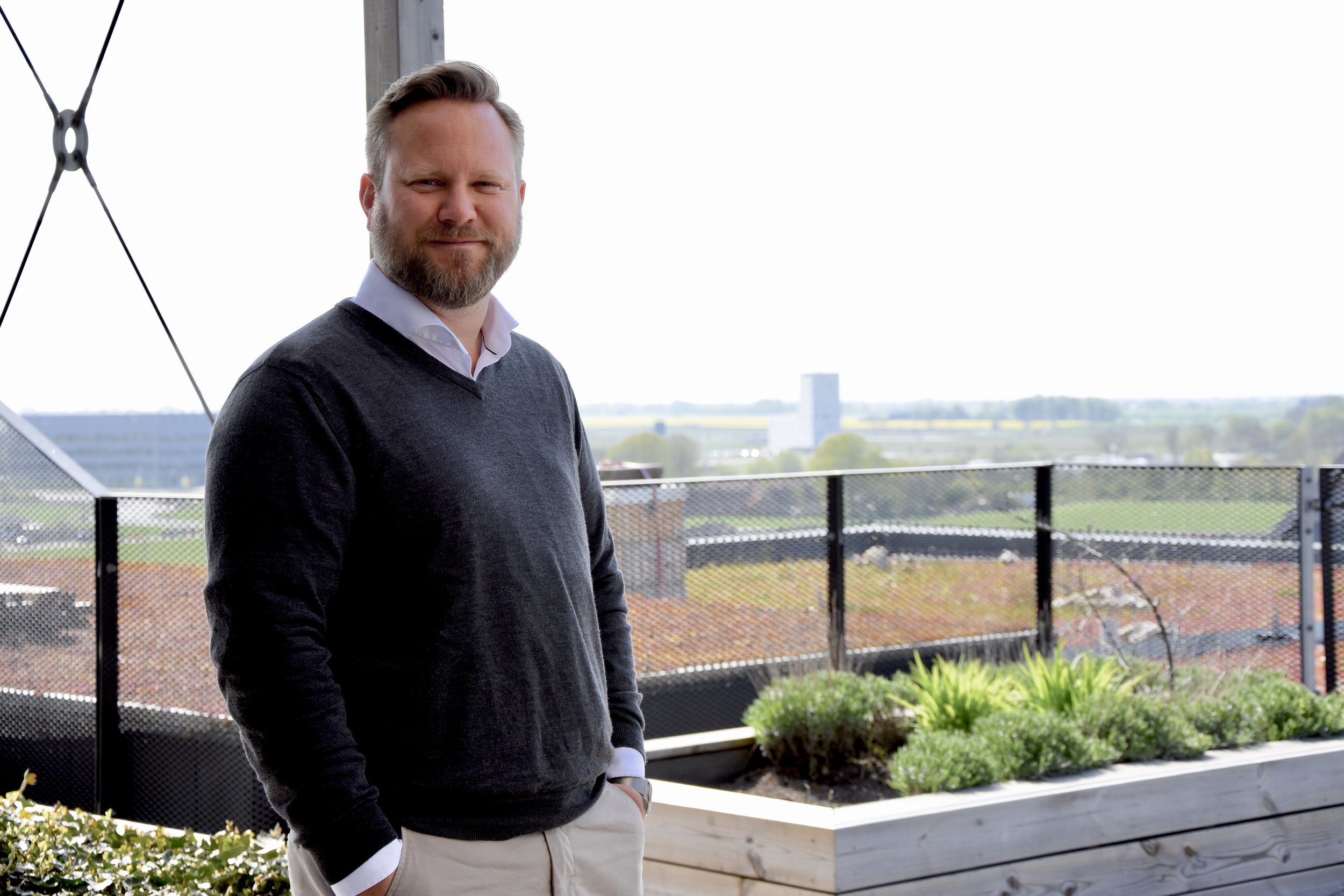“E-commerce will continue to grow - execution power, speed, and convenience key factors to reach our goals”
We sat down with Sven Thiessen, our new Chief Supply Chain Officer, to hear about how to scale logistics and manage rapid growth while also reducing our carbon footprint. Sven joined Boozt having formerly managed fulfillment and supply chain operations at Amazon, Zalando, and Zalando Lounge.
Right now Boozt is on a growth journey, expanding not only the customer base but also strengthening the category assortment to offer customers the true Nordic department store experience online. You have previously worked with high growth companies, can you tell us more about your experience with scaling logistic solutions?
For the past 15 years, I have worked for companies that have experienced high growth in highly dynamic environments. I joined Amazon back when they only had one warehouse in Germany. After two years I joined the launch team of a new fulfillment site and within a year, we went from a team of 30 people to more than 1500. After 6 years at Amazon, I went on to join Zalando, where I had once more the opportunity to ramp up a warehouse.
I learned a lot from my years working in these highly dynamic environments. You constantly have to adjust to new conditions, volumes, and regulations. Flexibility and scalability were key to succeed. Of course, when you move very fast you make a lot of mistakes, but that is part of the learning journey as well. Having had these opportunities and the experience is extremely helpful in setting the right priorities, focus on scalability, and anticipating the typical pitfalls.
These past two years, the industry has been facing challenging market conditions. What are our main challenges going forward and how are we equipped to tackle the bottlenecks that may arise in this dynamic environment?
We are experiencing an unpredictable environment, which for the past two years has been impacted by a lot of uncertainty. For almost two years the Covid-19 pandemic had a strong grip on the whole world, forcing countries into long lockdowns with heavy impacts on all industries. Whereas the offline shopping sector was hit hard by lockdowns, the e-commerce companies were overwhelmed by the shifting demand to online shopping. Especially for the operational business units it has been challenging. When everybody else went into home office it was not an option for Logistics. Suddenly you had to deal with the need for increased safety measures, high volumes but decreasing availability of workforce. This was a real stress test for the resilience of the operational units in general. The positive part is that it made the bottlenecks and weak links very clear. We all learned to deal with and react to quick shifts in demand. Maintaining and improving this flexibility and resilience going forward will be extremely important.
From my point of view, Boozt is very well equipped for this dynamic environment. The teams know how to navigate through dynamic times and have shown great flexibility.
In general, I also perceive Boozt as a very fast-paced company. We have strong execution power because people are empowered, enabled, and expected to take responsibility and make decisions. I would say that this is one of our biggest competitive advantages and puts us in a great position for whatever challenge comes next.
Our current and future consumers are becoming increasingly concerned with environmental sustainability. In what ways are we finding opportunities to reduce our footprint and become more transparent in the supply chain?
There are two dimensions to this question. The first is finding opportunities within our immediate range of control, i.e. our own operations. We are striving for efficiency, which eliminates waste and therefore positively impacts our environmental footprint. We currently run our fulfillment center on renewable energy, and we have added solar panels on the roofs of the center which contributed to a 97% increase in the production of solar energy compared to 2020.
We are continuously testing our packaging composition so that we are able to deliver our goods intact and as climate-friendly as possible to our customers. As we look for new spaces for our warehouse, we also consider staying as close as possible to our customers so that we reduce our CO2 emissions as much as we can.
The other dimension is to ensure a strong focus on sustainability outside our immediate range of control. We work with many partners who deliver our customer orders, provide our equipment, packaging materials, etc. Here we closely assess whom we want to partner with from a sustainability perspective. Before we decide to partner up, we do not only look at financial numbers but also check if these partners have engaged in reducing their carbon footprint as well. We also discuss how we would cooperate to get even better results.
How do you see the e-commerce industry evolving?
If the trend continues, e-commerce will become larger than offline shopping over the next years. This means that we are on the right side of the development. But this also means that the market will become more competitive as more and more offline players go online. In order to succeed in this competitive landscape, it is helpful to already have a strong market position and leverage our significant experience to please our customers with great and relevant selection, best-in-class convenience, and all that at an attractive price. I think we are very well positioned in that race.
We want to become the leading Nordic department store. What do you think will enable Boozt to reach our goal?
Execution power, speed, and convenience will be key factors. We are also good at understanding the dynamics in the market, and customer sentiments. We are already delivering best-in-class customer experience amongst our peers, and if we are able to stay consistent with that, then we have a great head start.

